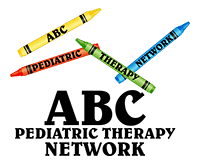What is Speech Therapy?

What do you think of when you hear about a speech-language pathologist? “Oh, they help with saying the ‘r’ and ‘s’.” A speech-language pathologist is much more than a therapist that only helps a child say the “r” sound. Speech pathologists provide a wealth of information regarding a multitude of critical developmental aspects across the life span.
• Feeding (from infancy and up)
• Play skills (pre-language/linguistic skills)
• Vocabulary
• Phrase/sentence length
• Grammar
• Understanding of language (following directions, memory, understanding vocabulary, understanding questions, main ideas, idioms/figurative language, etc.)
• Expression of ideas (answering questions, formulating thoughts, use of vocabulary, etc.)
• Social language (greeting/closing, taking turns in conversation and in games/activities, making requests, ability to express emotions, etc.)
• Voice (harsh, breathy, whispered voice, etc.)
• Stuttering
• Articulation
• Phonological awareness (skills that impact ability to read and spell)
There are a wide variety of disorders that we treat such as apraxia, phonological disorders, fluency disorders, voice disorders, receptive/expressive language disorders, oral motor feeding disorders, Autism, Down Syndrome, Cerebral Palsy, chromosomal disorders, learning disabilities, hearing disorders, etc. We work with children with a wide range of challenges and find ways to help them grow and develop functional language through different modes of communication (i.e., verbally speaking, use of physical cues to assist in learning how to plan out movements required to produce speech sounds, using an augmentative alternative communication device—AAC device, increasing jaw/tongue strength).
For more information visit http://www.abcpediatrictherapy.com
Michelle L. Huss, M.A. CCC-SLP
Developmental Checklist
Is your child meeting their developmental milestones?
 Skip to content
Skip to content